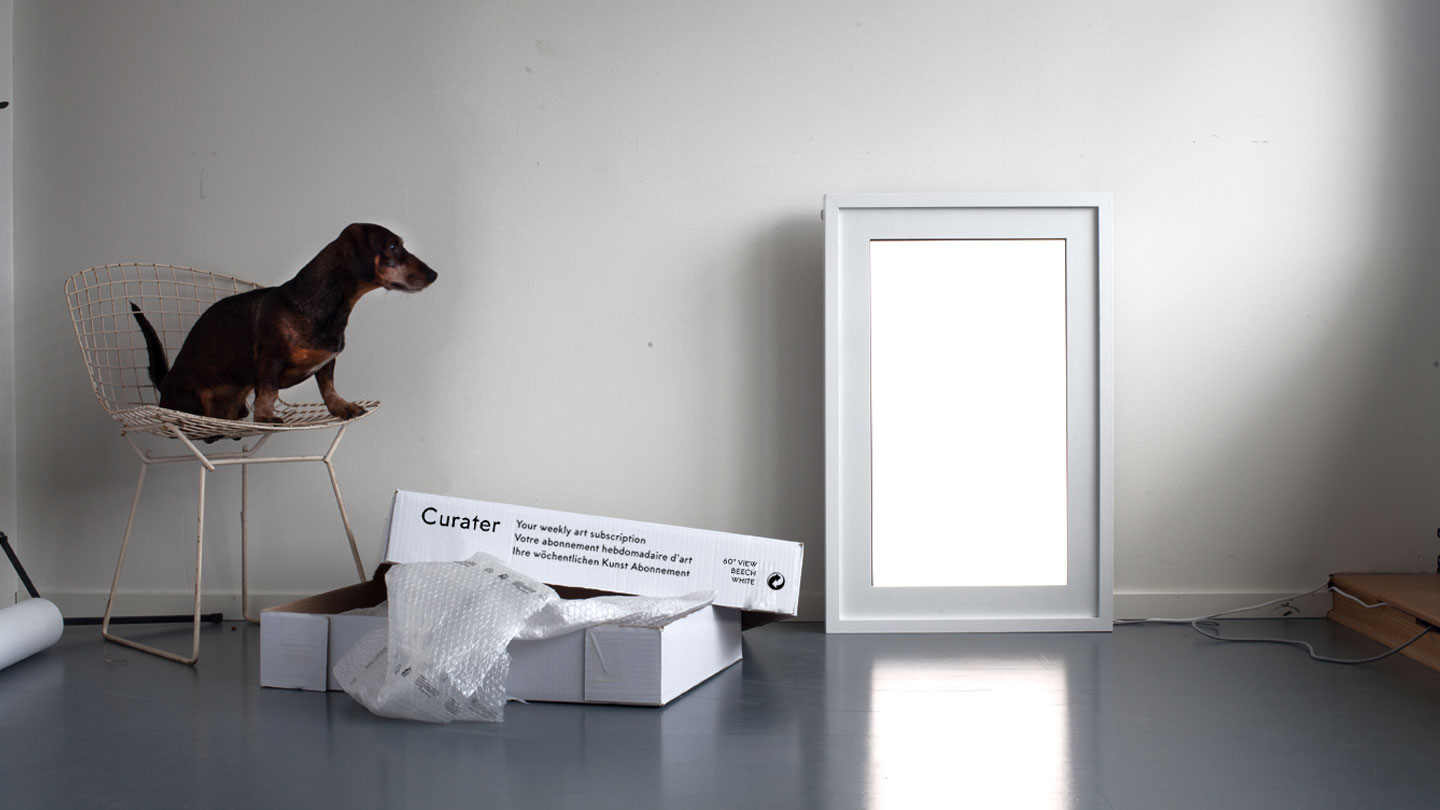
February 29, 2016
Curating Consumption: The Apps Making Shopping Easier
As the marketplace balloons, shoppers look to online apps to vet products for ethical violations, and to actors for book recommendations.

Curater offers subscribers digitally streamed art exhibitions via a picture frame like the prototype shown here.
Courtesy Jacob Otterström
Faced with an overwhelming variety of choices, the average shopper has to shuffle through endless pages of product info (and user comments, ratings, and reviews) to answer simple questions, such as best value for the price, and complex ones, such as ethical concerns. Then, of course, there’s the primary issue of whether or not the thing in question, be it a dress or a painting or a book or a can opener, will make the shopper look cool.
This morass of consumption information has brought about a proliferation of services and tools aimed at narrowing down options and providing a tailored shopping experience. Shoppers who care about the origins of what they buy have multiple ways to ease that burden (as well as the guilt). Following in the steps of apps such as Think Dirty, which informs the consumer of potentially harmful ingredients in skincare products, and Buycott, which provides information about a product’s manufacturer, the aVOID Internet plug-in inserts itself into the shopping experience by replacing images of products linked to child exploitation with stop signs. Using data from the advocacy group Active Against Child Labor, aVOID has blocked more than two million products from the likes of Guess (which has since reformed its policies) and integrates with online retailers such as Amazon.
Such customization is happening on all levels, from low to high. Even art collectors and literati who don’t have time to do their own gleaning are embracing the meta-shopping experience, choosing wares that have been carefully selected by someone with refined taste. Swedish fashion house ACNE has developed Curater, a digital art-exhibition system that showcases a curated selection of artwork. Far from the gadget-gift digital picture frame, Curater is currently an invitation-only subscription service, which will stream between six and eight exhibitions yearly on a high-definition, wireless LED canvas, providing constant variety for its users.
In the purely physical realm, One Grand Bookstore, in the town of Narrowsburg, New York, showcases books that celebrated creative minds, such as Tilda Swinton and Ta-Nehisi Coates, would choose to take to a hypothetical desert island. One Grand seeks to wrestle book-buying from the impersonal space of Amazon and make the transaction slower and more intimate by bringing a personal touch to the shopping experience. Soon the question will no longer be “Where did you get that?” but “Who helped you pick it out?”






